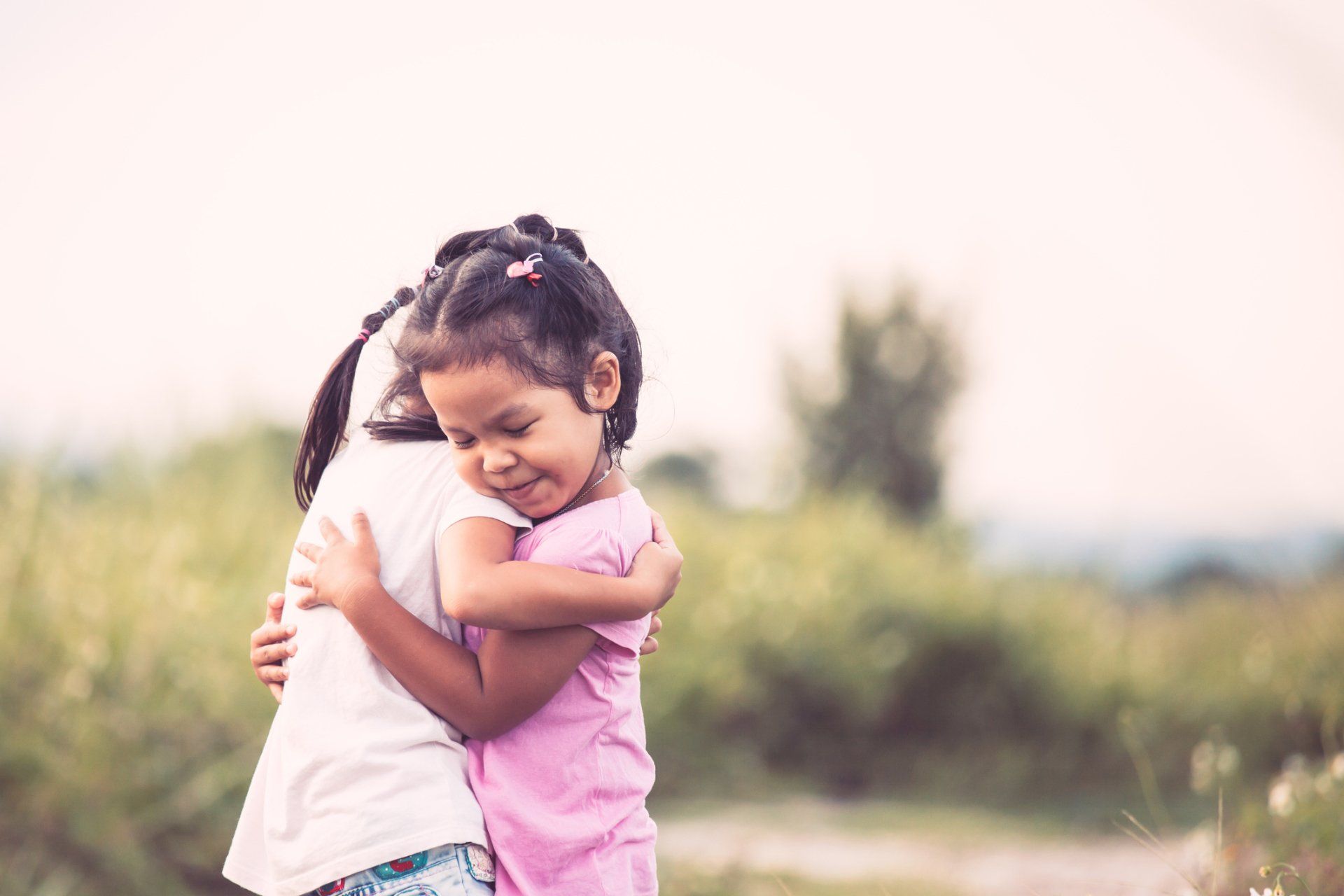Teach your child how to be kind
Most people have a desire to be kind to others and to be helpful towards others. It is each parent’s great responsibility to teach their children how to express these natural desires. Research found that a person’s desire to help and comfort others comes just as natural to humans as the desire to sometimes be self-centred or hurtful. "It's almost as though we're born predisposed to be upset by other people's pain," says Alfie Kohn, author of The Brighter Side of Human Nature: Altruism and Empathy in Everyday Life.
Feel good emotions are good for everyone and everyone benefits from them – with good reasons. Scientific studies proved that kindness has many emotional, physical and mental health benefits. Patty O’Grady, PhD, a neuroscience expert, emotional learning expert and positive psychology expert who specialises in education has reported that: “Kindness changes the brain by the experience of kindness. Children and adolescents do not learn kindness by only thinking about it and talking about it. Kindness is best learned by feeling it so that they can reproduce it”.
Giving is as important as receiving
Children are not made happy by simply being the receivers of kindness. Their feelings of happiness escalate, their wellbeing improves, they can have more enriched friendships and bullying can be reduced when we teach them to be givers of kindness.
Children cannot learn kindness by only hearing about it. When a child experiences kindness they are better able to show kindness themselves. Research furthermore indicated that being able to display kindness increases our likelihood of forming meaningful relationships with others. The hormone oxytocin can be triggered when showing kindness and in turn, this hormone contributes to a variety of mental and physical health benefits.
Kindness is a quality which children learn over time and with practice. Thankfully there are many things that you as a parent can do to encourage your child to be a kinder, gentler person.
Helping your toddler:
- Show your child appreciation for when he/she says please or thank you.
- Model kindness to your child.
- Gradually start teaching your child different expressions of kindness.
- Giving hugs to siblings for helping a younger child to get something done.
- Create a kindness project with your child; it can be a project which consist of random acts of kindness each day or it can be a one day in a month project where you do a big act of kindness together with your child.
- Make time at the dinner table every night for all the family members to share their acts of kindness or an experience in which someone has been kind to them and have discussions on the topic.
- Always try and make your kids a part of your kindness efforts e.g. when someone falls sick and you take flowers/food to them let your child join in on the act.
- Teach your child to compliment others. E.g. Compliment a friend on wearing nice clothes or for having good manners.
Some tips for your pre-schooler:
- Believe in your child’s ability to be kind. If a child is always treated as if he/she is up to no good, that child will most likely soon be up to no good. In contrast, if you believe that your child wants to be kind and help others, and make sure he/she knows that, your child will tend to live up to those expectations.
- Start coaching your children to pay attention to the facial expressions of others. This is the first step in the process of starting to learn to see things from another’s perspective. It is easier, and we as people are also more likely to reach out to other people in need, when we are able to see their point of view.
- Point out rudeness to your child in the right way. You might say “Wow, that lady must have had a terrible day and now she is taking it out on us by talking to us with such a mean voice, what do you think?” By doing this it is important that our children learn and understand that when someone is mean to you, you don’t have to be mean in response.
- Teach your child to start asking the right questions. In a situation for instance, when they see a child looking sad and all alone on the playground. Teach your child to be caring by asking such a child questions like “are you okay”, “Is there something I can do to help you?”, “Is there anything you need?”, “Do you want to play with me and my friends?”.
Many parents prioritise the happiness of their children and their achievements too high above their children’s concern for others. It is important for children to also learn how to balance their needs with the needs of others.
You need to teach children that caring for others is also an important priority. This can be taught to children through simple things like holding them to high ethical expectations which can include honouring their commitments even if it will make them unhappy sometimes. E.g. before a child quits a team sport or friendship they should be taught to take into consideration their obligation to the group and they should be encouraged to try and solve the problem before quitting.
Create opportunities for your children to practice gratitude, kindness and caring.
Start expanding your child’s circle of concerns. Most children easily care about the people that are closest to them, but it is also important to start teaching them to care about people outside their circle of concern e.g. the new kid in school or the old lady who lives across the street.
Make sure to also read our blog on Practical Ways to Teach Your Child Social Skills
Share Post
Complete the following form if you require more info about EQ4kids or want to enroll your child at your nearest Franchise.
Blog Enquiry










